Filter by

Afterlives of war
Afterlives of war documents the lives and historical pursuits of the generations who grew up in Australia, Britain and Germany after the First World War. Although they were not direct witnesses to the conflict, they experienced its effects from their earliest years. Based on ninety oral history interviews and observation during the First World War Centenary, this pioneering study reveals the co…
- Edition
- -
- ISBN/ISSN
- -
- Collation
- -
- Series Title
- -
- Call Number
- -
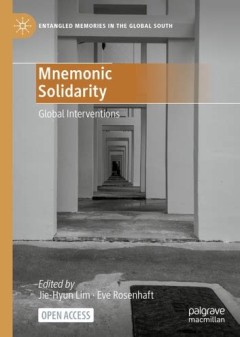
Mnemonic Solidarity : Global Interventions
This open access book provides a concise introduction to a critical development in memory studies. A global memory formation has emerged since the 1990s, in which memories of traumatic histories in different parts of the world, often articulated in the terms established by Holocaust memory, have become entangled, reconciled, contested, conflicted and negotiated across borders. As historical act…
- Edition
- 1
- ISBN/ISSN
- 9783030576691
- Collation
- XI, 135 hlm; ill., lamp.,
- Series Title
- -
- Call Number
- -

Crystal Thurberwald; or, the Evangel of Tappaneau
In the following pages Charles, Count of Tappaneau, represents simply the alert spirit which during the great war ever characterized the Belgians. He is in no sense a real -character. All of the situations are pure fiction. Real names are used only as complimentary and with due respect, with the exception of Niels de Bode, which character pos sibly is too severe.
- Edition
- -
- ISBN/ISSN
- -
- Collation
- 160 p. 21 cm
- Series Title
- -
- Call Number
- -

Heroic Serbia
M. Victor Bérard is one of the ablest and most cultivated French political writers. Born in 1864 and educated at the Ecole Normale Supérieure he rapidly distinguished himself by the brilliance of his intellect and the versatility of his talent. His Hellenic studies stimulated his interest in Near Eastern questions, and after publishing, in 1894, his first important work 44 De l'Origine des Cu…
- Edition
- -
- ISBN/ISSN
- 96981899
- Collation
- robarts; toronto
- Series Title
- -
- Call Number
- -
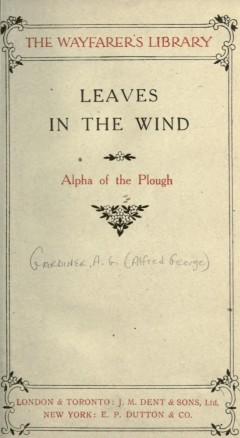
Leaves in the wind
- Edition
- -
- ISBN/ISSN
- -
- Collation
- 251 p. : 20 cm
- Series Title
- -
- Call Number
- -
- Edition
- -
- ISBN/ISSN
- -
- Collation
- 251 p. : 20 cm
- Series Title
- -
- Call Number
- -
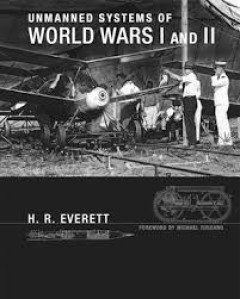
Unmanned Systems of World Wars I and II
"Foreword by Michael Toscano"--Cover."Military drones have recently been hailed as a revolutionary new technology that will forever change the conduct of war. And yet the United States and other countries have been deploying such unmanned military systems for more than a century. Written by a renowned authority in the field, this book documents the forgotten legacy of these pioneering efforts, …
- Edition
- -
- ISBN/ISSN
- 0262331772
- Collation
- 1 online resource (757 pages) :illustrations, map.
- Series Title
- -
- Call Number
- -

Wartime Schooling and Education Policy in the Second World War Catholic Educ…
This book deals with the development of private secondary schooling during the Second World War in Belgium. It focuses on how the German occupier used education to gain acceptance of the regime, and discusses the attitudes of Belgian education authorities, schools, teachers and pupils towards the German occupation. Suggesting that the occupation forced Belgian education authorities, such as the…
- Edition
- -
- ISBN/ISSN
- 978-1-137-52011-1
- Collation
- -
- Series Title
- -
- Call Number
- -
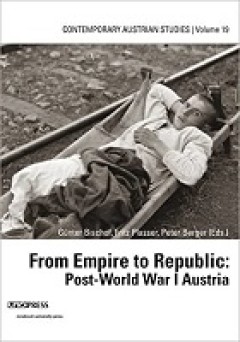
From Empire to Republic: Post-World War I Austria
After the dissolution of the Austro-Hungarian Monarchy, Austria transformed itself from an empire to a small Central European country. Formerly an important player in international affairs, the new republic was quickly sidelined by the European concert of powers. The enormous losses of territory and population in Austria’s post-Habsburg state of existence, however, did not result in a politic…
- Edition
- -
- ISBN/ISSN
- 9781608010257
- Collation
- -
- Series Title
- -
- Call Number
- -
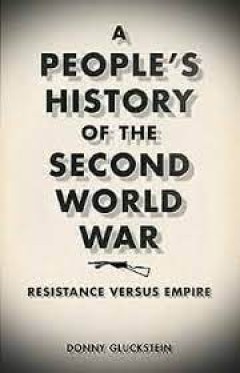
A People's History of the Second World War Resistance Versus Empire
A People's History of the Second World War unearths the fascinating history of the war as fought 'from below'. Until now, the vast majority of historical accounts have focussed on the conflict between the Allied and Axis powers for imperialist mastery. Donny Gluckstein shows that in fact between 1939 and 1945 two distinct wars were fought – one ‘from above’ and one ‘from below’. Using…
- Edition
- -
- ISBN/ISSN
- 9781849647205
- Collation
- -
- Series Title
- -
- Call Number
- -

Continued Violence and Troublesome Pasts: Post-war Europe between the Victors…
In most European countries, the horrific legacy of 1939–45 has made it quite difficult to remember the war with much glory. Despite the Anglo-American memory narrative of saving democracy from totalitarianism and the Soviet epic of the Great Patriotic War, the fundamental experience of war for so many Europeans was that of immense personal losses and often meaningless hardships. The anthology…
- Edition
- -
- ISBN/ISSN
- 9789522229038
- Collation
- -
- Series Title
- -
- Call Number
- -
 Computer Science, Information & General Works
Computer Science, Information & General Works  Philosophy & Psychology
Philosophy & Psychology  Religion
Religion  Social Sciences
Social Sciences  Language
Language  Pure Science
Pure Science  Applied Sciences
Applied Sciences  Art & Recreation
Art & Recreation  Literature
Literature  History & Geography
History & Geography